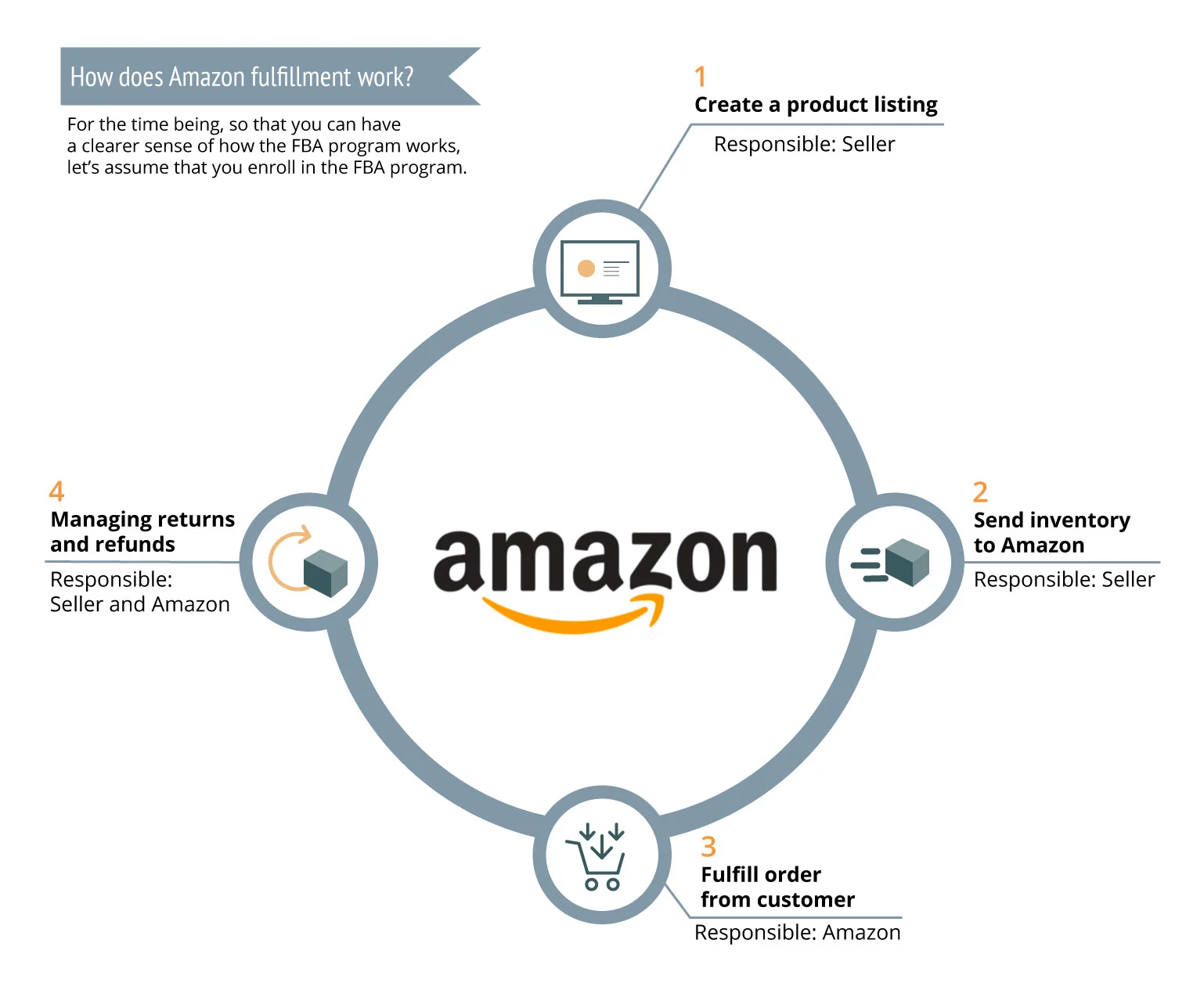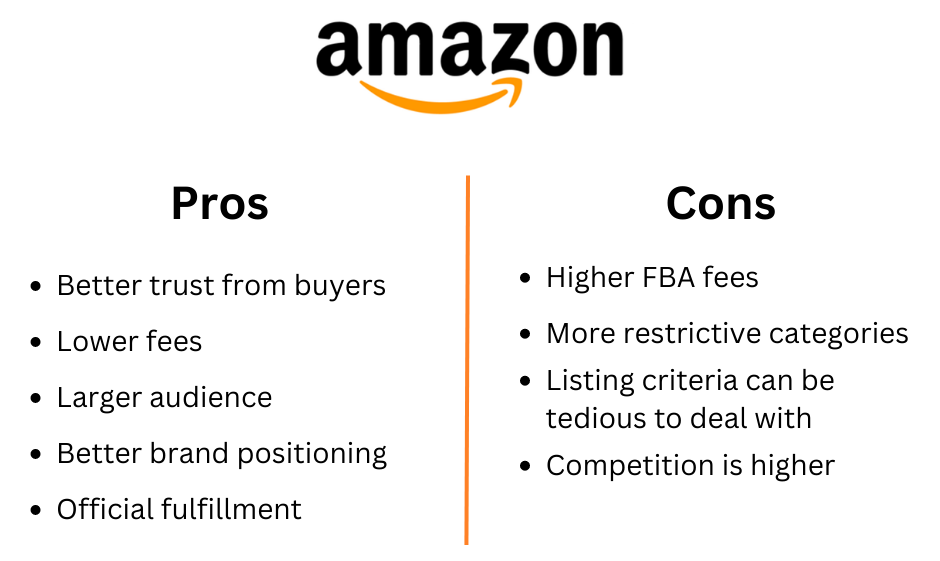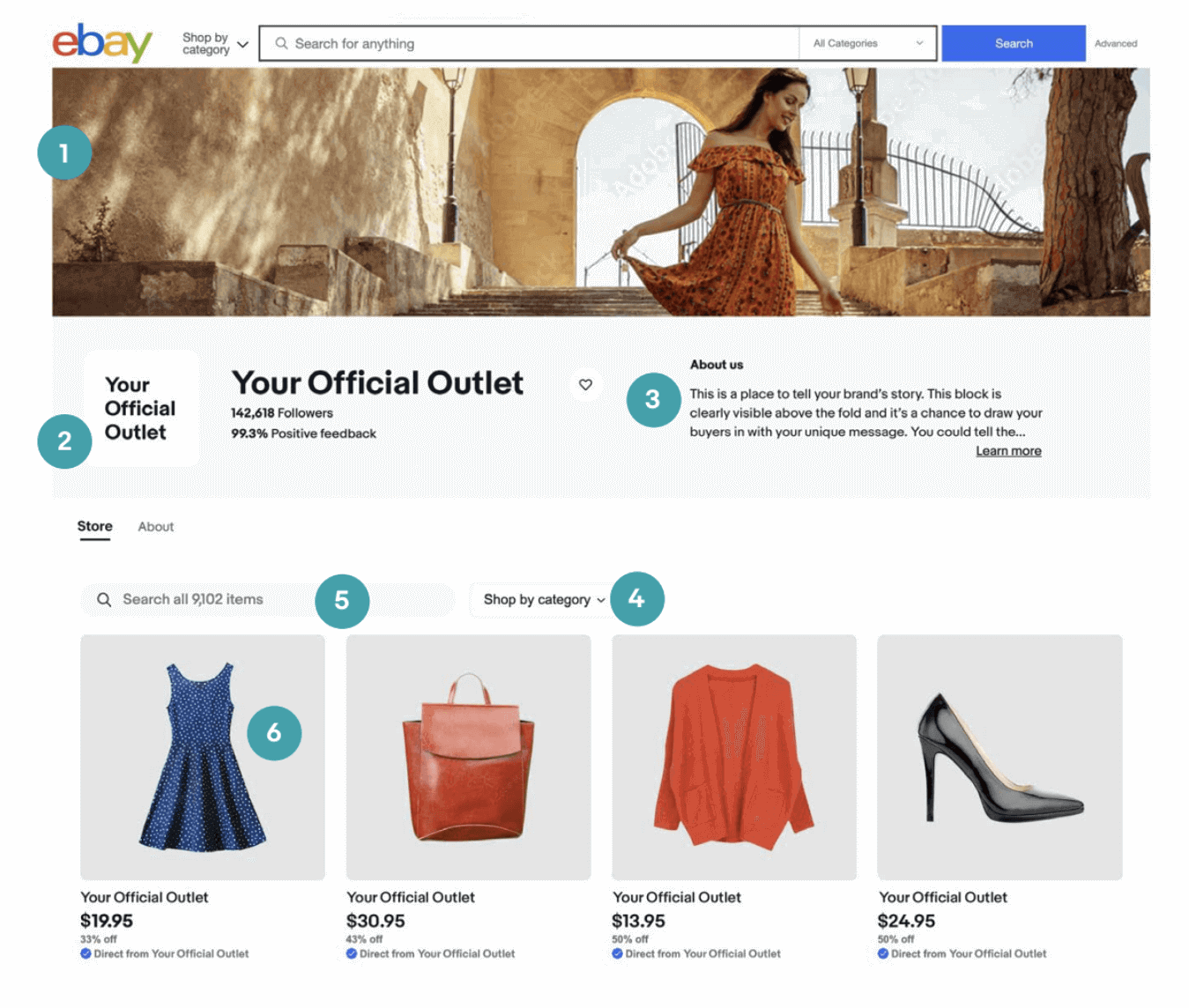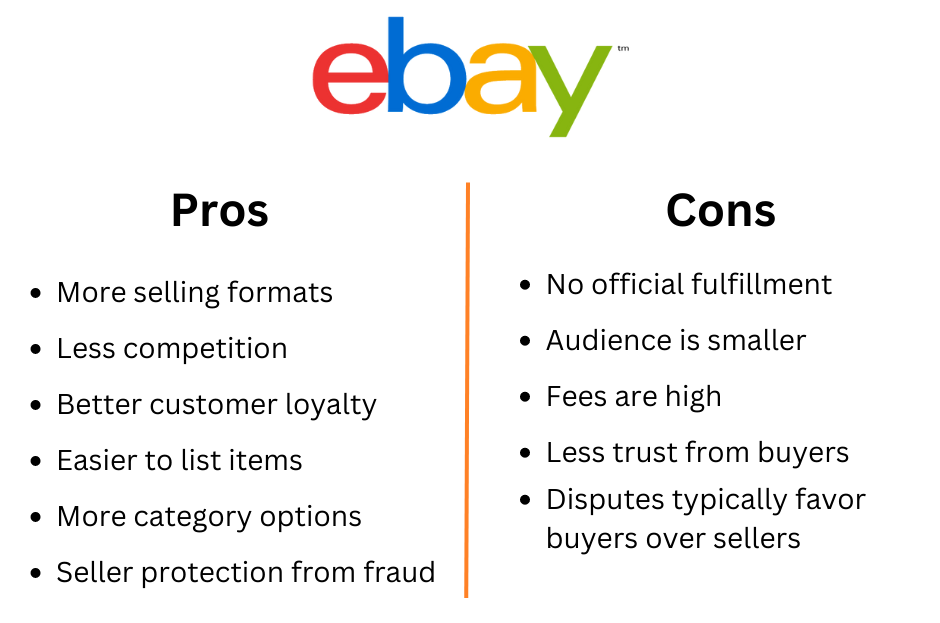If your business sells tangible products online, you’ve likely asked yourself which third-party platforms are the best at hosting your products. A common comparison is eBay vs Amazon.
While the choice might seem obvious, there’s actually a bit of nuance with each platform that ought to be considered when assessing which site will allow your products to perform the best.
In this post, we’re going to compare some of the benefits and drawbacks of each site and why you might want to consider one over the other. You may even discover there’s a place for your products on both platforms.
eBay vs Amazon Comparison
Amazon and eBay are two of the most prominent e-commerce platforms in the world (although sites like Temu and Wish are growing rapidly).
Each platform has its unique strengths, catering to different types of businesses and customers, so let’s take a brief look at the strengths and weaknesses of selling on eBay vs Amazon.
Amazon: The E-Commerce Giant
Amazon, often hailed as the undisputed e-commerce giant, boasts an unparalleled global presence and a colossal customer base. For online sellers, tapping into Amazon’s vast marketplace can be a game-changer, propelling their products to a broader audience and unlocking massive revenue potential.
One of Amazon’s crowning achievements is its “Fulfillment by Amazon” (FBA) service, a brand-defining solution that streamlines the order processing and shipping process, granting businesses the luxury of focusing on core operations while Amazon handles the logistics:

Yet, despite its undeniable allure, breaking ground on Amazon’s competitive terrain can be a daunting endeavor, especially for newcomers.
The sheer volume of sellers vying for attention intensifies the competition, making it essential for businesses to craft unique selling propositions and implement strategic marketing tactics to stand out from the crowd.
Moreover, Amazon’s seller policies, while designed to maintain a high standard of service and customer satisfaction, can be quite rigorous, requiring adherence to specific guidelines and performance metrics.
Amazon pros and cons:

Dive Deeper: 7 Pro Tips for Retailers to Capitalize on Amazon’s Prime Day
eBay: The Auction-Style Marketplace
eBay, in contrast to Amazon’s straightforward e-commerce model, presents a unique auction-style marketplace that sets it apart from its competitors. This dynamic format frees sellers by giving them the leniency to set their prices and engage in auctions, creating an element of thrill and competition among potential buyers:

This interactive approach opens up new avenues for sellers to explore creative pricing strategies and discover the true value of their products in a live market setting.
Moreover, eBay’s vast array of products caters to a diverse audience, making it a treasure trove for shoppers seeking a wide range of unique and hard-to-find items. Whether customers are in search of vintage collectibles, rare memorabilia or one-of-a-kind handmade crafts, eBay serves as a haven where they can explore an extensive selection unmatched by conventional e-commerce platforms.
One of the drawbacks of eBay is that it can tend to be looked at as a “wild west” shopping site since the types of sellers on the platform can range from big retail brands down to your grandpa selling things out of his garage.
It creates a thrifting mentality where people tend to expect lesser-quality service and, therefore, might favor other alternatives that are more consistently reliable and professional.

Dive Deeper: How to Set Up Your E-commerce Product Page for Maximum Conversions
Diversifying Your Channels: Maximizing Revenue
The secret to business growth lies in diversifying your channels and maximizing their potential. The goal is not to choose one platform over the other, but to use both Amazon and eBay (and potentially other channels) to your advantage.
Nailing It and Scaling It
Starting with one platform, such as Amazon, can be a wise move (although you could just as easily start with eBay instead and scale up from that). Once you’ve fine-tuned your strategies and your sales numbers are in the black, it’s probably time to open the door for the next platform.
Expanding your reach across multiple channels ensures a steady revenue stream and reduces the risk of relying solely on one platform.
Leveraging Platforms for Profitability
Rather than asking which platform is better, focus on making both Amazon and eBay profitable for your business.
Here are some tips to achieve this:
- Testing and Optimization: Continuously test and optimize your listings, product offerings, and marketing strategies on both platforms. Analyze customer data and adjust your approach to maximize conversions and sales.
- Tailored Strategies: Keep in mind that what works on Amazon may not necessarily work on eBay, and vice versa. Tailor your marketing and selling strategies for each platform, considering the unique preferences and behavior of their respective user bases.
- Customer Reviews and Satisfaction: Customer reviews play a crucial role in building trust and credibility. Prioritize excellent customer service and prompt resolution of any issues to maintain positive feedback and reviews on both platforms.
Dive Deeper: How to Use Amazon Reviews for Content and Product Development
Timing Is Everything
While diversification is undoubtedly a pivotal step for business growth, jumping the gun and diversifying too early can lead to detrimental resource constraints, stunting your overall potential for expansion.
Instead, a strategic approach involves honing your efforts and solidifying your presence on one platform initially, allowing you to build a strong foundation before venturing into new territories. After you get the gist of one channel’s dynamics and understand your target audience, you will effectively lay the groundwork that you can apply to other platforms in the future.
Patience and thoughtful planning will set the stage for a smoother, more rewarding path toward a diversified and thriving business presence across a plurality of e-commerce sites.
Continuously Seeking Opportunities
The world of e-commerce is ever-evolving, with new platforms and opportunities emerging regularly. Stay vigilant in exploring new channels and trends in the market. When you hear about a successful platform from other sellers, don’t hesitate to give it a try.
As a savvy entrepreneur, keep your finger on the pulse of the market, eagerly seeking new channels and trends that align with your business objectives.
You have to adopt a mindset of continuous exploration, always on the lookout for promising avenues to diversify your reach and boost revenue streams.
But, you may say, “It’s impractical to be on every e-commerce platform.” You’re correct. That’s why you have to heavily scrutinize each platform and evaluate their potential for your products to perform well on them.
Hint: A big indicator can be how prevalent your competitors are on the platform. Chances are that if they’re on it, it’s probably doing well for them and, therefore, could do well for you also.
Moreover, don’t underestimate the value of learning from others’ experiences. When you hear success stories from fellow sellers about a rising platform, don’t hesitate to dive in and explore its potential for yourself.
Dive Deeper: How to Scale Your E-commerce Traffic Acquisition with Native Advertising
Last Thoughts on eBay vs Amazon
The debate of “eBay vs Amazon” boils down to leveraging multiple channels for business growth rather than choosing one over the other. Successful businesses understand that it’s not about relying solely on a single platform but about using various channels to create a more solid and profitable business.
So, explore a multitude of sales channels, test the performance of each, and constantly be on the lookout for new product placement opportunities.
Remember, it’s not just about which platform is better; it’s about making them all work in harmony to elevate your business to new heights.
Now, go ahead and explore the potential of Amazon and eBay, and keep an eye on other platforms that may complement your business’s growth journey!
If you’re ready to boost your bottom line, Single Grain’s e-commerce marketing experts can help!👇
Repurposed from our Marketing School podcast.






